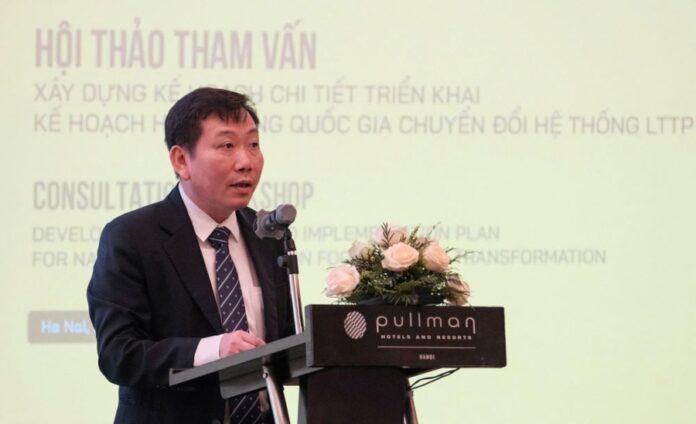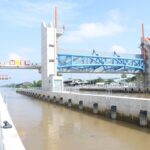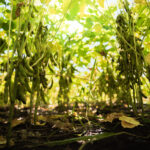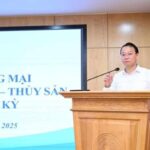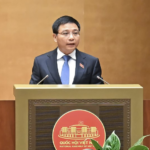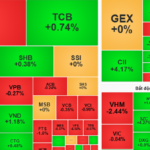The Consultative Workshop on the Draft Detailed Plan for Implementing the “National Action Plan for Transforming Vietnam’s Food System into a Transparent, Responsible, and Sustainable One by 2030” held on June 24, 2025, was a significant step forward. The event was organized by the Ministry of Agriculture and Environment in collaboration with the United Nations Development Program (UNDP) and other stakeholders. It aimed to turn national commitments into concrete actions toward building a fair, resilient, and environmentally friendly agricultural system.
The workshop attracted over 100 delegates from various ministries, localities, embassies, international organizations, non-governmental organizations, research institutes, universities, businesses, and associations, both domestic and foreign, as well as experts in agriculture and sustainable development.
ADDRESSING UNPRECEDENTED CHALLENGES
In his speech, Mr. Nguyen Do Anh Tuan, Director of the International Cooperation Department of the Ministry of Agriculture and Environment, emphasized the unprecedented challenges faced by Vietnam and the world, including severe climate change, biodiversity loss, and disruptions in global food supply chains due to geopolitical conflicts and the rise of protectionism. These crises threaten global food security and exacerbate inequalities between nations.
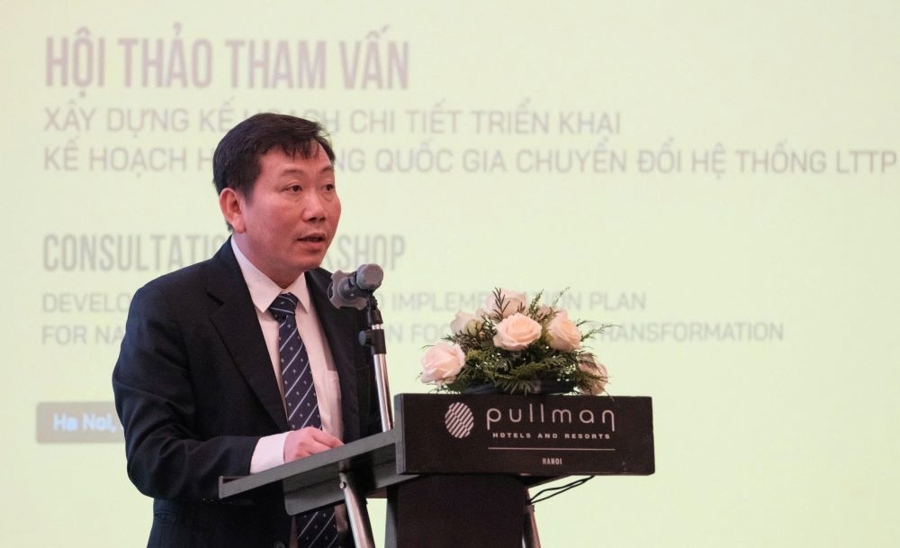
Notably, vulnerable groups such as poor farmers, low-income consumers, and natural ecosystems are bearing the brunt of these challenges. Mr. Tuan stressed, “We cannot address the climate crisis by neglecting small-scale farmers and vulnerable groups. We cannot expect low-income countries to protect the environment without a fair share of global responsibilities and benefits.”
Vietnam’s agriculture sector faces numerous challenges, including small-scale farming, depleted natural resources, the impacts of climate change, volatile markets, and changing global consumption patterns. Smallholder farmers have limited access to technology and market information and often only participate in providing raw materials.
“Consumers’ awareness of nutrition, sustainable consumption, and food waste prevention is still limited. Vietnam is also facing a double burden of malnutrition: a high rate of child malnutrition in mountainous areas and a rapid increase in obesity and nutrition-related non-communicable diseases in urban areas.”
Mr. Nguyen Do Anh Tuan, Director of the International Cooperation Department, Ministry of Agriculture and Environment.
According to Mr. Tuan, Vietnamese agriculture plays a pivotal role in ensuring food security, social stability, and livelihoods for over 60% of the population, contributing about 12% of the country’s GDP (as of 2024 data). Vietnam has transformed from a country facing food crises to one of the world’s leading agricultural exporters.
Mr. Tuan also recalled the call made by the UN Secretary-General at the 2021 UN Food Systems Summit (UNFSS), highlighting the central role of food systems in achieving all 17 Sustainable Development Goals (SDGs).
REITERATING INTERNATIONAL COMMITMENTS
To address these challenges, Mr. Nguyen Do Anh Tuan shared that the Vietnamese government has developed several strategies and action plans toward a green, smart, and sustainable agriculture sector. These include the Strategy for Sustainable Agriculture and Rural Development for the period 2021–2030, with a vision toward 2050; the National Action Plan for Transforming the Food System into a Transparent, Responsible, and Sustainable One by 2030; the Project for Developing Science and Technology to Promote Circular Economy in Agriculture by 2030; and, most recently, the Project for Sustainable Development of 1 Million Hectares of High-Quality and Low-Emission Rice Cultivation in the Mekong Delta.
In October 2024, the Ministry of Agriculture and Rural Development led the signing of the Partnership Agreement for Food System Transformation in Vietnam, bringing together 47 domestic and international partners. Notably, since March 2025, the Ministry of Agriculture and Rural Development and the Ministry of Natural Resources and Environment have merged to form the Ministry of Agriculture and Environment, serving as the national focal point for food system transformation.
With support from organizations such as FAO, UNDP, IFAD, CIAT, CIRAD, and the Government of Ireland, the Ministry of Agriculture and Environment is implementing various activities. These include developing monitoring indicators, piloting transformations in Son La and Dong Thap, creating training documents on food systems, and compiling 100 ecological agriculture models by region. Vietnam is expected to release a comprehensive report in July 2025 at the second Global Food Systems Summit (UNFSS+4) in Ethiopia.
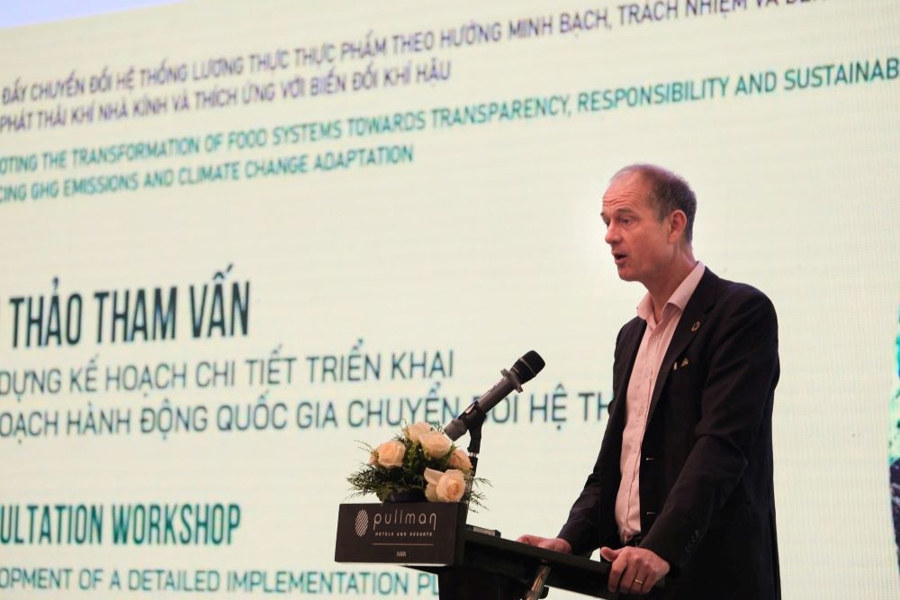
At the workshop, Mr. Patrick Haverman, UNDP Vietnam’s Deputy Resident Representative, emphasized that the Detailed Implementation Plan (DIP) is more than just an administrative document. It is a concrete roadmap for realizing the vision of food system transformation, tailored to Vietnam’s context, with clear responsibilities, priorities, and investment mobilization mechanisms, especially from the private sector.
“Despite global efforts to transform food systems, progress toward achieving Goal 2 (Zero Hunger) has been slow. As of 2023, nearly 600 million people were still expected to be hungry by 2030. Soaring food prices, especially in low-income countries, prevent millions from accessing healthy diets.”
Mr. Patrick Haverman, UNDP Vietnam’s Deputy Resident Representative.
Mr. Haverman shared that these challenges are exacerbated by climate change and global conflicts, which affect supply chains and increase vulnerabilities. Therefore, Vietnam needs systemic changes to build a resilient and equitable food system. Vietnam has demonstrated strong commitments at various international forums, including UNFSS 2021, COP26, and COP28, by pledging to achieve net-zero emissions by 2050 and integrating food systems into its national climate plan (NDC 3.0).
During the workshop, delegates provided feedback on the draft Food System Transformation Plan for the period 2026–2030, shared experiences between countries, and participated in technical discussions on topics such as institutions and policies, ecological agriculture, local nutrition and food, waste reduction, distribution, and sustainable consumption.
The event was a practical step toward fulfilling Vietnam’s commitments in implementing the National Action Plan for Food System Transformation by 2030. Vietnam aims to build a transparent, responsible, and sustainable food system that meets development requirements, ensures food security, adapts to climate change, protects the environment, and contributes to achieving the UN’s 17 Sustainable Development Goals.
Smart Irrigation Technology for Salinity-Affected Regions: A Mekong-Korea Collaboration
The Mekong Delta is facing a dual challenge posed by climate change and rapid economic development. In Vietnam, according to the World Bank’s 2025 Country Report on Climate and Development, economic losses due to climate impacts had reached 10 billion USD by 2020, equivalent to 3.2% of GDP, and are projected to rise to 9.9% of GDP under the RCP 2.6 scenario or 12.4% of GDP under the RCP 4.5 scenario.
Soybean Crop Rotation: The “3-in-1” Solution for Sustainable Agriculture
“With rising input costs, continuous cultivation leading to soil degradation, and the complexities of climate change, soybean crop rotation is emerging as a viable path to sustainable agriculture. Reducing costs, boosting yields, and regenerating soil health are the three key benefits soybeans offer when incorporated into a well-planned crop rotation system.”
“TTC AgriS Forges Ahead with Financial Institution Collaborations, Shaping the Financial Ecosystem”
In the context of a global shift towards sustainable agriculture, TTC AgriS (AgriS, HOSE: SBT) is at the forefront of fostering an agricultural financial ecosystem. Through strategic collaborations with reputable financial institutions, AgriS is realizing an integrated, modern, and far-reaching value chain. This pioneering approach is aimed at achieving sustainable development and international integration, setting a new standard for the industry.
Unveiling the Sustainable Durian Production Model Project: Yara Vietnam’s Initiative in Dak Lak
The Launch Ceremony of the Project on “Developing a Model for Using Organic Fertilizers in Sustainable Durian Production” was held at the Yara Knowledge Center in the Central Highlands region. This project is a collaborative effort between the Plant Protection Department, the Institute of Soil Science and Agrochemistry, and Yara Vietnam Company. With their combined expertise, they aim to revolutionize sustainable farming practices for durian production in the region.

























